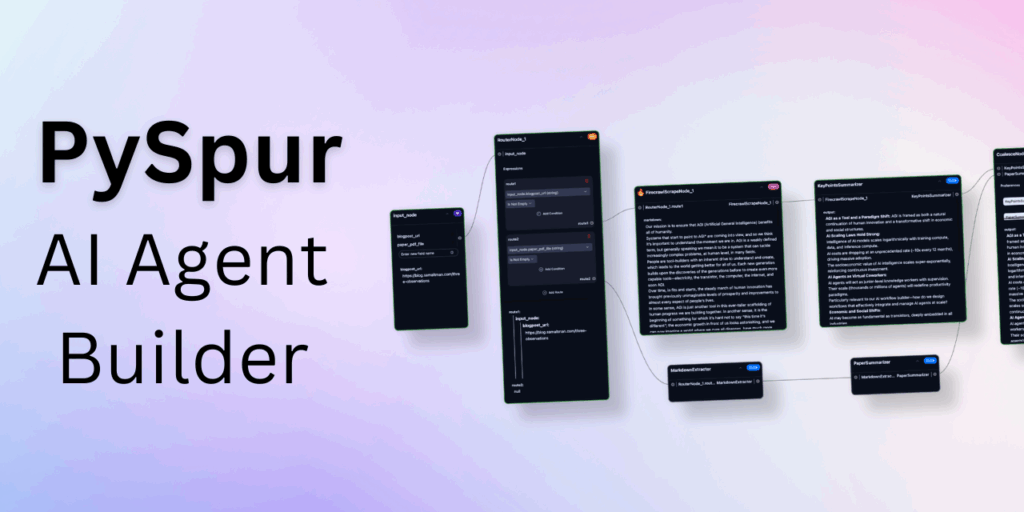pyspur
Basic Information
PySpur is a developer-focused visual playground and framework for building, testing, debugging, and deploying AI agents. It helps AI engineers iterate on agentic workflows faster by providing a UI and Python-based tooling to define test cases, construct agent graphs, run workflows step-by-step, and publish agents as APIs. The README frames PySpur as a solution to prompt tuning, workflow visibility gaps, and terminal-only testing by offering visual traces, human-in-the-loop breakpoints, node-level debugging, and one-click deployment. It supports multimodal inputs, document ingestion for RAG pipelines, and a wide range of LLMs and infrastructure providers. Quick start instructions and development recipes are included, with Python 3.11+ required and a local server option using sqlite by default and a recommended Postgres configuration for production.








